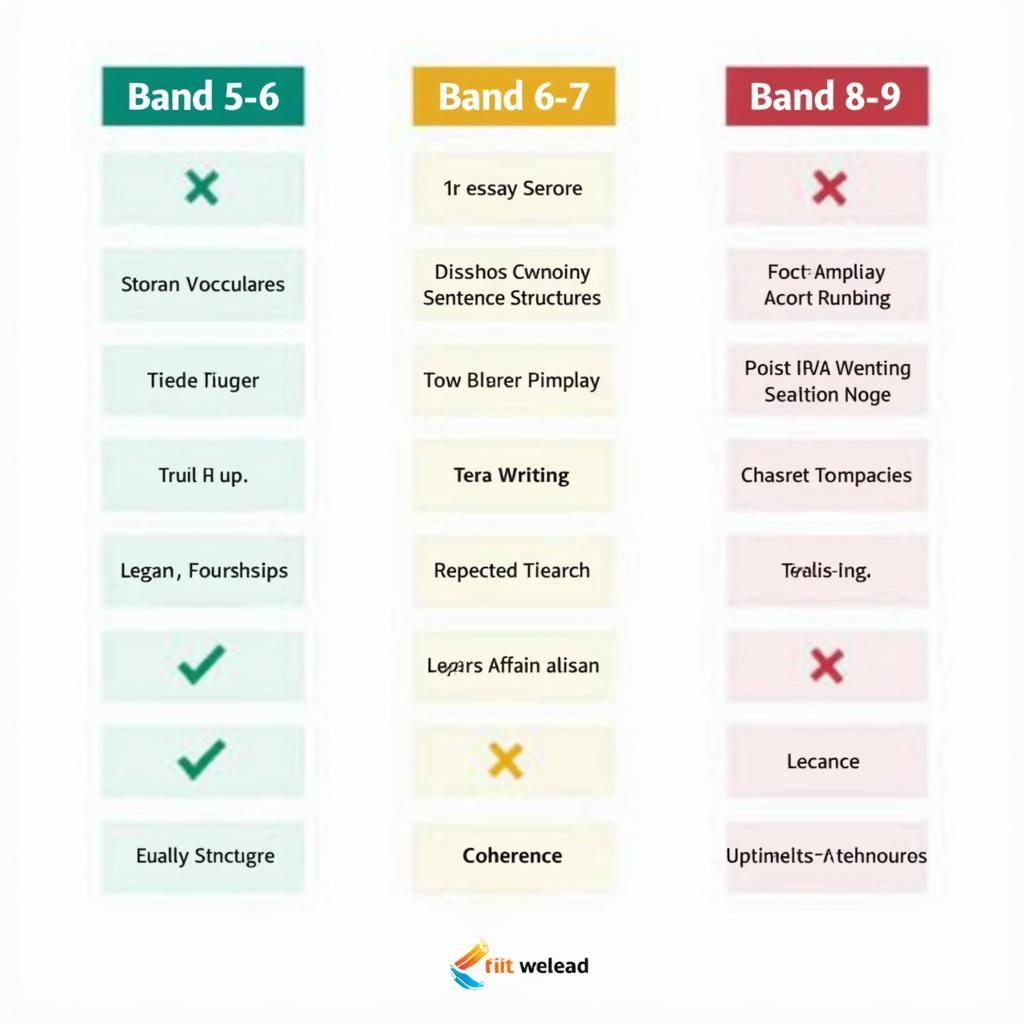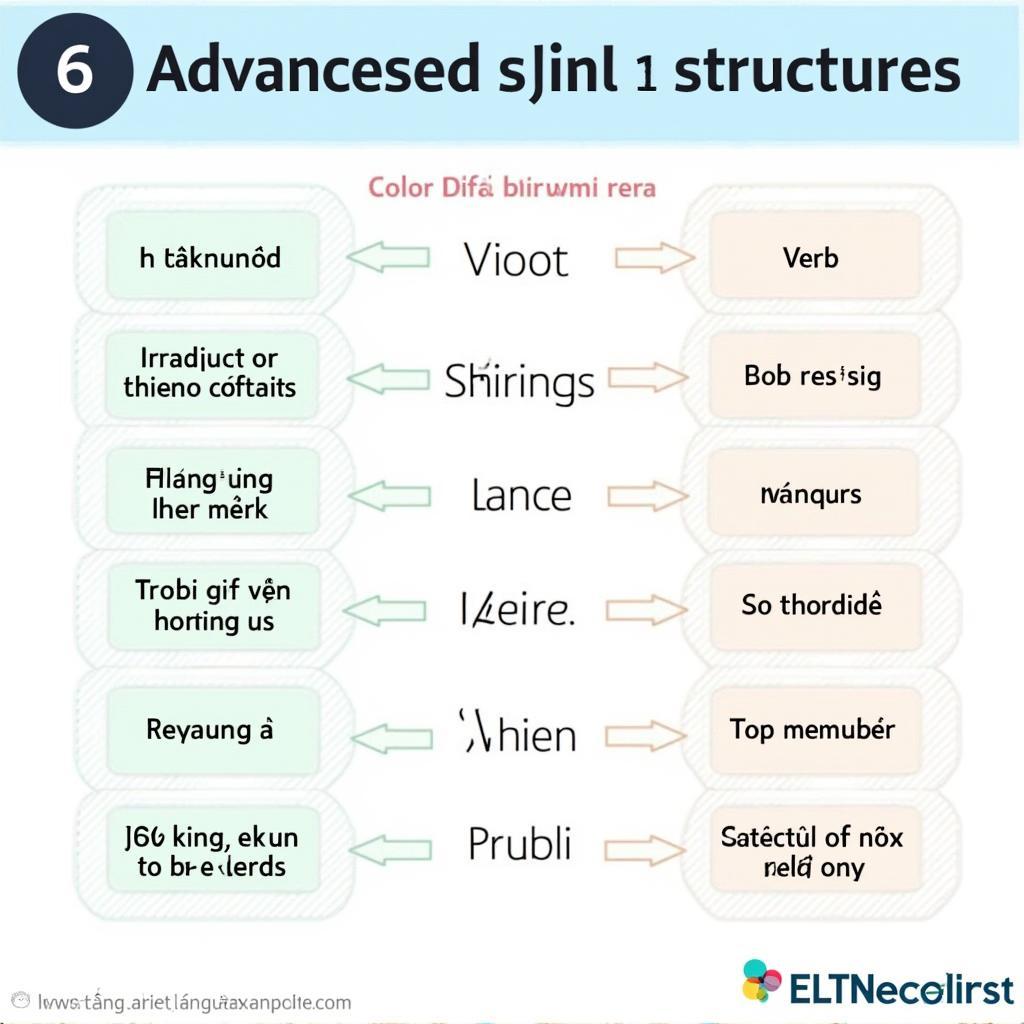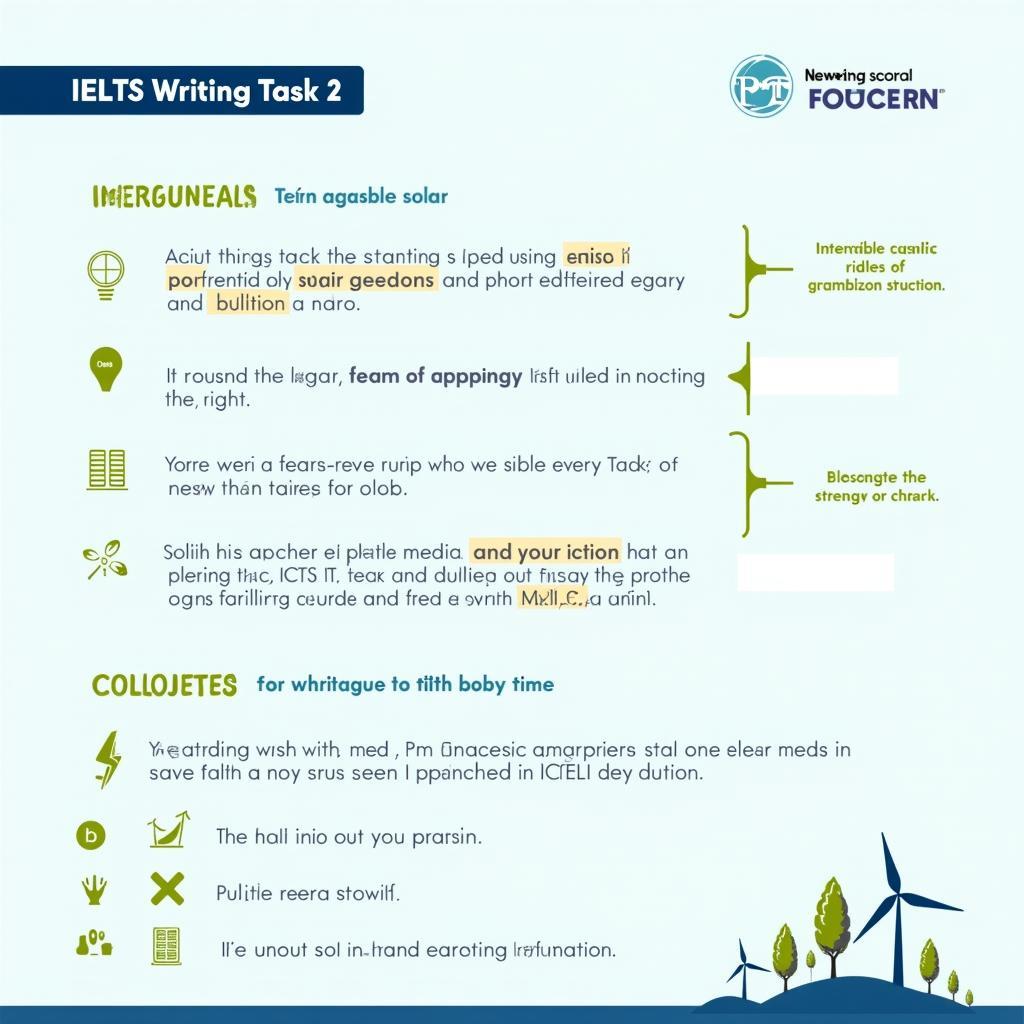Đa dạng sinh học và cân bằng sinh thái là một trong những chủ đề môi trường xuất hiện thường xuyên nhất trong kỳ thi IELTS Writing Task 2. Theo thống kê từ các trung tâm thi IELTS tại Việt Nam, chủ đề này xuất hiện trung bình 3-4 lần mỗi năm, đặc biệt tập trung vào các kỳ thi từ tháng 3 đến tháng 9.
Trong bài viết này, bạn sẽ học được cách tiếp cận một đề bài về đa dạng sinh học một cách hiệu quả thông qua 3 bài mẫu ở các band điểm khác nhau (Band 8-9, Band 6.5-7, và Band 5-6). Mỗi bài mẫu đều được phân tích chi tiết về cấu trúc, từ vựng, ngữ pháp và các yếu tố giúp đạt điểm cao. Bạn cũng sẽ được trang bị kho từ vựng chuyên ngành và các cấu trúc câu “ăn điểm” để áp dụng ngay vào bài viết của mình.
Dưới đây là một số đề thi thực tế đã xuất hiện gần đây về chủ đề này:
- “Some people think that protecting the environment is the government’s responsibility. Others believe that individuals should also take responsibility. Discuss both views and give your opinion.” (British Council, tháng 5/2023)
- “The loss of biodiversity is a major environmental issue. What are the causes and what solutions can you suggest?” (IDP, tháng 8/2023)
- “Human activities have negative effects on plant and animal species. Some people think it is too late to do anything about this problem. Others believe that effective measures can be taken to improve this situation. Discuss both views and give your opinion.” (BC & IDP, tháng 3/2024)
Đề Writing Task 2 Thực Hành
Many species of plants and animals are becoming extinct due to human activities. Some people believe that maintaining biodiversity is crucial for ecological balance, while others argue that human development should be prioritized. Discuss both views and give your own opinion.
Dịch đề: Nhiều loài thực vật và động vật đang bị tuyệt chủng do các hoạt động của con người. Một số người tin rằng duy trì đa dạng sinh học là rất quan trọng đối với cân bằng sinh thái, trong khi những người khác cho rằng sự phát triển của con người nên được ưu tiên. Thảo luận cả hai quan điểm và đưa ra ý kiến của bạn.
Phân tích đề bài:
Đây là dạng câu hỏi Discussion + Opinion – một trong những dạng phổ biến nhất trong IELTS Writing Task 2. Đề bài yêu cầu bạn:
- Thảo luận quan điểm thứ nhất: Tại sao đa dạng sinh học quan trọng cho cân bằng sinh thái
- Thảo luận quan điểm thứ hai: Tại sao phát triển con người nên được ưu tiên hơn
- Đưa ra ý kiến cá nhân: Bạn nghiêng về phía nào hoặc có quan điểm cân bằng
Các thuật ngữ quan trọng cần hiểu:
- Biodiversity (đa dạng sinh học): Sự đa dạng của các loài sinh vật trong một hệ sinh thái
- Ecological balance (cân bằng sinh thái): Trạng thái ổn định của hệ sinh thái khi các loài cùng tồn tại hài hòa
- Extinct/Extinction (tuyệt chủng): Sự biến mất hoàn toàn của một loài
Những lỗi thường gặp của học viên Việt Nam:
- Chỉ tập trung vào một quan điểm mà bỏ qua quan điểm còn lại
- Đưa ra ý kiến cá nhân quá sớm (ngay trong phần mở bài)
- Sử dụng ví dụ chung chung không cụ thể
- Lạm dụng cụm “In my opinion” nhiều lần trong bài
Cách tiếp cận chiến lược:
Cấu trúc 4 đoạn được khuyên dùng:
- Mở bài: Paraphrase đề + nêu rõ bài viết sẽ thảo luận cả hai quan điểm
- Thân bài 1: Phân tích tại sao đa dạng sinh học quan trọng (với 2-3 lý do và ví dụ cụ thể)
- Thân bài 2: Phân tích quan điểm ưu tiên phát triển con người (với 2-3 lý do)
- Kết bài: Tóm tắt và nêu rõ quan điểm cá nhân
Bài Mẫu Band 8-9
Bài viết Band 8-9 thể hiện sự thành thạo cao về ngôn ngữ với từ vựng học thuật phong phú, cấu trúc câu đa dạng và phức tạp, luận điểm rõ ràng được phát triển đầy đủ, và khả năng liên kết ý tưởng một cách mạch lạc, tự nhiên.
The accelerating rate of species extinction has sparked considerable debate regarding environmental priorities. While some advocate that preserving biodiversity is paramount for maintaining ecological equilibrium, others contend that economic advancement should take precedence. This essay will examine both perspectives before concluding that a balanced approach is essential.
Proponents of biodiversity conservation argue that every species plays an irreplaceable role in ecosystem functioning. Bees, for instance, are responsible for pollinating approximately 75% of global food crops, making their survival crucial for human food security. Furthermore, diverse ecosystems demonstrate greater resilience to environmental disruptions such as climate change and disease outbreaks. The loss of keystone species can trigger cascading effects throughout food webs, potentially destabilizing entire ecosystems. From a medical perspective, many pharmaceutical breakthroughs have originated from compounds found in plants and animals, with countless species remaining unstudied for their potential therapeutic applications.
Conversely, those prioritizing human development highlight the pressing needs of growing populations. Infrastructure expansion, agricultural intensification, and industrial growth are often viewed as non-negotiable requirements for lifting millions out of poverty. Developing nations, in particular, face the dilemma of choosing between conservation and economic survival. They argue that wealthy countries already underwent industrialization without environmental constraints and should not now impose restrictions on emerging economies. Moreover, technological innovations may eventually provide alternatives to natural ecosystem services, reducing dependency on biodiversity.
In my view, this dichotomy presents a false choice. Sustainable development frameworks demonstrate that economic progress and biodiversity conservation are not mutually exclusive. Ecotourism generates substantial revenue while preserving habitats, and green technologies create employment without environmental degradation. Rather than viewing nature as an obstacle to development, we should recognize that long-term human prosperity fundamentally depends on healthy ecosystems. The COVID-19 pandemic has starkly illustrated how disrupting natural systems can have catastrophic economic consequences.
In conclusion, while human development concerns are legitimate, they cannot be sustainably achieved at the expense of biodiversity. A paradigm shift toward integrative solutions that harmonize ecological protection with economic needs represents the only viable path forward for both humanity and the planet.
(333 words)
 Bài mẫu IELTS Writing Task 2 về tầm quan trọng đa dạng sinh học đạt band 8-9
Bài mẫu IELTS Writing Task 2 về tầm quan trọng đa dạng sinh học đạt band 8-9
Phân Tích Band Điểm
| Tiêu chí | Band | Nhận xét |
|---|---|---|
| Task Response (Hoàn thành yêu cầu) | 9 | Bài viết trả lời đầy đủ tất cả các phần của đề bài với các luận điểm được phát triển sâu sắc. Quan điểm cá nhân rõ ràng và nhất quán xuyên suốt bài. Các ví dụ cụ thể (ong thụ phấn 75% cây trồng, COVID-19) minh họa hiệu quả cho luận điểm. |
| Coherence & Cohesion (Mạch lạc & Liên kết) | 9 | Cấu trúc bài chặt chẽ với sự chuyển đoạn mượt mà. Sử dụng đa dạng linking devices một cách tinh tế (While, Furthermore, Conversely, Moreover, Rather than). Mỗi đoạn có chủ đề rõ ràng và phát triển logic từ câu này sang câu khác. |
| Lexical Resource (Từ vựng) | 9 | Từ vựng học thuật phong phú và chính xác (accelerating rate, ecological equilibrium, keystone species, cascading effects, paradigm shift). Collocations tự nhiên (take precedence, non-negotiable requirements, false choice). Không có lỗi từ vựng đáng kể. |
| Grammatical Range & Accuracy (Ngữ pháp) | 9 | Sử dụng đa dạng cấu trúc câu phức tạp một cách chính xác (câu phức với mệnh đề quan hệ, câu bị động, câu điều kiện ẩn, phân từ). Không có lỗi ngữ pháp. Kiểm soát tốt thì động từ và sự hòa hợp chủ vị. |
Các Yếu Tố Giúp Bài Này Được Chấm Điểm Cao
-
Introduction mở đầu ấn tượng: Sử dụng cụm “accelerating rate of species extinction has sparked considerable debate” thay vì cách viết sáo “Nowadays, many species are becoming extinct” – thể hiện vốn từ vựng phong phú ngay từ câu đầu tiên.
-
Phát triển luận điểm có chiều sâu: Không chỉ nói “bees are important” mà đưa ra số liệu cụ thể “75% of global food crops” và giải thích thêm về mối liên hệ với an ninh lương thực toàn cầu.
-
Cân bằng hai quan điểm một cách công bằng: Dành độ dài tương đương cho cả hai body paragraphs, thể hiện khả năng phân tích khách quan trước khi đưa ra ý kiến cá nhân.
-
Sử dụng ví dụ đương đại: Đề cập đến COVID-19 là một ví dụ thời sự, liên quan và thuyết phục về hậu quả của việc phá hủy hệ sinh thái.
-
Quan điểm cá nhân tinh tế: Thay vì chọn một bên, người viết đưa ra góc nhìn thứ ba – đây là sự lựa chọn “false choice” và đề xuất giải pháp tích hợp, thể hiện tư duy phê phán cao.
-
Kết bài có tầm nhìn: Sử dụng cụm “paradigm shift” và “viable path forward” tạo ấn tượng mạnh về khả năng tổng kết và nhìn về tương lai.
-
Linking devices đa dạng và tự nhiên: Không lặp lại “firstly, secondly” mà sử dụng các từ nối học thuật như “Furthermore”, “Conversely”, “Moreover”, “Rather than” được đan xen tự nhiên trong câu.
Bài Mẫu Band 6.5-7
Bài viết Band 6.5-7 thể hiện khả năng sử dụng ngôn ngữ tốt với từ vựng đủ đa dạng, cấu trúc câu khá phức tạp nhưng vẫn còn một số hạn chế về độ tinh tế và sự linh hoạt so với Band 8-9.
In recent years, many animal and plant species have been disappearing because of human activities. Some people think that protecting biodiversity is very important for the environment, while others believe we should focus more on human progress. This essay will discuss both sides of this argument.
On the one hand, maintaining biodiversity is crucial for several reasons. Firstly, all living things in nature are connected to each other in food chains. If one species disappears, it can affect many other species. For example, when bees die, many plants cannot reproduce because bees help with pollination. This means less food for humans and animals. Secondly, many medicines come from plants and animals in nature. Scientists are still discovering new species that might help cure diseases in the future. Therefore, losing species means losing potential medical treatments.
On the other hand, human development is also important, especially for poor countries. These countries need to build factories and cities to create jobs and improve people’s lives. Sometimes, this development requires using land where animals and plants live. Many people argue that humans should come first because we need houses, food, and work. Additionally, protecting nature can be very expensive. The money spent on conservation could be used for education, healthcare, or infrastructure instead.
In my opinion, both biodiversity and human development are important, but we need to find a balance. We can develop in ways that do not harm nature too much, such as using renewable energy or creating national parks. Some countries have shown that economic growth and environmental protection can happen together. For instance, Costa Rica has increased its forest coverage while also developing its economy through ecotourism.
In conclusion, although human development is necessary, we should not ignore the importance of biodiversity. Finding sustainable solutions that benefit both nature and people is the best approach for our future.
(305 words)
Phân Tích Band Điểm
| Tiêu chí | Band | Nhận xét |
|---|---|---|
| Task Response (Hoàn thành yêu cầu) | 7 | Trả lời đầy đủ các phần của đề bài với các ý chính rõ ràng. Quan điểm cá nhân được nêu rõ. Tuy nhiên, một số luận điểm chưa được phát triển sâu như “medicines come from plants” – cần ví dụ cụ thể hơn. |
| Coherence & Cohesion (Mạch lạc & Liên kết) | 6.5 | Cấu trúc bài hợp lý với introduction, body và conclusion rõ ràng. Sử dụng linking words đúng (Firstly, Secondly, Additionally) nhưng có phần máy móc. Chuyển đoạn tự nhiên nhưng còn thiếu sự liên kết tinh tế giữa các câu trong đoạn. |
| Lexical Resource (Từ vựng) | 6.5 | Từ vựng đủ để diễn đạt ý tốt với một số collocations tốt (food chains, renewable energy, forest coverage). Tuy nhiên, còn lặp từ (important xuất hiện 3 lần, development 5 lần) và thiếu từ vựng học thuật nâng cao. |
| Grammatical Range & Accuracy (Ngữ pháp) | 7 | Sử dụng được một số cấu trúc phức (câu điều kiện If one species disappears, mệnh đề quan hệ). Đa số câu đúng ngữ pháp nhưng thiếu sự đa dạng. Chủ yếu dùng câu đơn và câu ghép thay vì câu phức tạp hơn. |
So Sánh Với Bài Band 8-9
1. Introduction:
- Band 8-9: “The accelerating rate of species extinction has sparked considerable debate” (sử dụng cụm động từ học thuật, danh từ hóa)
- Band 6.5-7: “Many animal and plant species have been disappearing” (đơn giản, trực tiếp hơn)
2. Phát triển luận điểm:
- Band 8-9: Đưa ra số liệu cụ thể “75% of global food crops” và giải thích sâu về “cascading effects throughout food webs”
- Band 6.5-7: Ví dụ chung chung hơn “when bees die, many plants cannot reproduce” – thiếu độ chính xác và chiều sâu
3. Từ vựng:
- Band 8-9: Sử dụng từ học thuật nâng cao: “ecological equilibrium”, “keystone species”, “paradigm shift”
- Band 6.5-7: Từ vựng đơn giản hơn: “connected to each other”, “come first”, “do not harm nature too much”
4. Cấu trúc câu:
- Band 8-9: “Rather than viewing nature as an obstacle to development, we should recognize that…” (cấu trúc đảo ngữ phức tạp)
- Band 6.5-7: “We can develop in ways that do not harm nature too much” (câu đơn giản với mệnh đề quan hệ cơ bản)
5. Quan điểm cá nhân:
- Band 8-9: Đưa ra góc nhìn thứ ba, chỉ ra đây là “false choice” và đề xuất giải pháp tích hợp
- Band 6.5-7: Quan điểm đơn giản hơn “both are important, we need balance” – ít thuyết phục hơn
Bài Mẫu Band 5-6
Bài viết Band 5-6 thể hiện khả năng truyền đạt ý tưởng cơ bản nhưng còn nhiều hạn chế về từ vựng, ngữ pháp và sự phát triển luận điểm.
Nowadays, many animals and plants are dying because people do many activities. Some people think biodiversity is important for nature balance, but other people think human development is more important. I will discuss both ideas in this essay.
First, biodiversity is important for the environment. All animals and plants need each other to live. If some animals die, other animals will have problems too. For example, if all bees die, flowers cannot grow and we cannot have fruits. Also, some animals and plants can make medicine for people. Scientists find new medicine from nature every year. So if we lose biodiversity, we lose medicine too.
Second, human development is also important. People need houses, roads, and factories to live better. Many countries are poor and they need to develop fast. They need to cut trees to build cities and make farms. People need jobs and money to feed their families. If we only protect animals and plants, many people will be poor and hungry. Rich countries already developed, so poor countries should develop too.
In my opinion, I think both things are important but human life is more important than animals. We need to develop but we should try to protect nature too. Government should make rules to protect some animals and plants but also help people to develop. We can make parks for animals and also build cities in other places.
In conclusion, biodiversity and human development are both important. We should protect nature but we also need to think about people’s life. If we work together, we can have both development and protect nature.
(280 words)
Phân Tích Band Điểm
| Tiêu chí | Band | Nhận xét |
|---|---|---|
| Task Response (Hoàn thành yêu cầu) | 5.5 | Có trả lời đề bài và đề cập đến cả hai quan điểm, nhưng phát triển ý còn mơ hồ và thiếu chiều sâu. Quan điểm cá nhân chưa rõ ràng (“both things are important but human life is more important” – mâu thuẫn). Ví dụ quá chung chung. |
| Coherence & Cohesion (Mạch lạc & Liên kết) | 5.5 | Có cấu trúc cơ bản nhưng sử dụng linking words đơn điệu (First, Second, Also, So, But). Một số câu không liên kết tốt với nhau. Lặp lại cấu trúc “is important” quá nhiều lần làm giảm tính mạch lạc. |
| Lexical Resource (Từ vựng) | 5 | Từ vựng hạn chế và lặp lại nhiều (important xuất hiện 7 lần, develop/development 8 lần, animals and plants 6 lần). Sử dụng từ không chính xác như “nature balance” thay vì “ecological balance”. Thiếu từ vựng chuyên ngành. |
| Grammatical Range & Accuracy (Ngữ pháp) | 5.5 | Chủ yếu sử dụng câu đơn và câu ghép đơn giản. Có một số lỗi ngữ pháp: “people do many activities” (unclear meaning), “flowers cannot grow” (oversimplification). Thiếu sự đa dạng về cấu trúc câu. Một số lỗi về mạo từ và giới từ. |
 So sánh các band điểm IELTS Writing Task 2 về chủ đề đa dạng sinh học
So sánh các band điểm IELTS Writing Task 2 về chủ đề đa dạng sinh học
Những Lỗi Sai Của Bài – Phân Tích & Giải Thích
| Lỗi sai | Loại lỗi | Sửa lại | Giải thích |
|---|---|---|---|
| “people do many activities” | Từ vựng không phù hợp | “human activities” hoặc “anthropogenic activities” | Trong văn viết học thuật, cần dùng cụm từ chính xác hơn. “Do activities” nghe quá đơn giản và không mang tính học thuật. |
| “nature balance” | Collocation sai | “ecological balance” hoặc “environmental equilibrium” | “Nature balance” không phải là cụm từ chuẩn trong tiếng Anh. Phải dùng thuật ngữ chính xác là “ecological balance”. |
| “if all bees die, flowers cannot grow” | Logic không chính xác | “if bees disappear, many flowering plants cannot reproduce effectively” | Hoa vẫn có thể mọc nhưng không thể sinh sản. Cần diễn đạt chính xác hơn về mối quan hệ thụ phấn. |
| “So if we lose biodiversity, we lose medicine too” | Câu quá đơn giản | “Therefore, biodiversity loss could result in the disappearance of potential pharmaceutical resources” | Cần sử dụng cấu trúc câu phức tạp hơn và từ vựng học thuật thay vì “lose medicine”. |
| “Many countries are poor and they need to develop fast” | Lặp đại từ, thiếu cohesion | “Many developing nations require rapid economic growth” | Tránh lặp “countries…they”, sử dụng từ vựng đa dạng hơn (developing nations) và cấu trúc câu chặt chẽ hơn. |
| “Government should make rules” | Lỗi số ít/số nhiều | “Governments should implement regulations” | “Government” cần ở dạng số nhiều khi nói chung. “Make rules” quá đơn giản, nên dùng “implement regulations/policies”. |
| “we can have both development and protect nature” | Lỗi song song cấu trúc | “we can achieve both development and nature conservation” | Sau “both” cần hai cấu trúc ngữ pháp giống nhau (hai danh từ hoặc hai động từ). Không được trộn lẫn. |
| Lặp từ “important” 7 lần | Từ vựng hạn chế | Thay thế bằng: crucial, vital, essential, significant, paramount | Việc lặp từ quá nhiều thể hiện vốn từ vựng nghèo nàn. Cần sử dụng từ đồng nghĩa để tạo sự đa dạng. |
Cách Cải Thiện Từ Band 6 Lên Band 7
Để nâng bài viết từ Band 6 lên Band 7, bạn cần tập trung vào 5 điểm chính sau:
1. Mở rộng và làm sâu luận điểm:
Thay vì chỉ nói “bees are important for flowers”, hãy phát triển thành: “Bees serve as primary pollinators for approximately 75% of food crops globally, and their decline directly threatens agricultural productivity and food security.” Luôn hỏi bản thân “Why?” và “So what?” để mở rộng ý tưởng.
2. Sử dụng từ vựng học thuật và collocations:
Thay thế từ vựng đơn giản bằng từ chuyên ngành: “important” → “crucial/vital/paramount”; “die” → “become extinct/disappear”; “nature” → “ecosystem/biodiversity/habitat”. Học theo cụm từ (collocations) thay vì học từ đơn lẻ như “face extinction”, “ecosystem services”, “sustainable development”.
3. Đa dạng hóa cấu trúc câu:
Kết hợp câu đơn, câu ghép và câu phức. Sử dụng mệnh đề quan hệ không xác định, cụm phân từ, và các cấu trúc nâng cao. Ví dụ: Thay vì “Bees help flowers. This is important.” → “Bees, which serve as primary pollinators, play an irreplaceable role in ecosystem functioning.”
4. Sử dụng linking devices linh hoạt:
Tránh chỉ dùng “First, Second, Finally”. Thay bằng: “Furthermore”, “Moreover”, “In addition to this”, “Conversely”, “Nevertheless”, “Consequently”. Đảm bảo các từ nối này được đặt ở nhiều vị trí khác nhau trong câu, không chỉ đầu câu.
5. Viết introduction và conclusion ấn tượng hơn:
Introduction nên paraphrase đề bài một cách tinh tế và nêu rõ hướng đi của bài viết. Conclusion không chỉ tóm tắt mà nên để lại ấn tượng với một câu kết mạnh mẽ về tầm nhìn hoặc hàm ý rộng hơn của vấn đề.
Từ Vựng Quan Trọng Cần Nhớ
| Từ/Cụm từ | Loại từ | Phiên âm | Nghĩa tiếng Việt | Ví dụ | Collocations |
|---|---|---|---|---|---|
| Biodiversity | (n) | /ˌbaɪ.əʊ.daɪˈvɜː.sə.ti/ | Đa dạng sinh học | Protecting biodiversity is essential for ecosystem health. | maintain/preserve/conserve biodiversity; biodiversity loss/hotspot |
| Ecological balance | (n) | /ˌiː.kəˈlɒdʒ.ɪ.kəl ˈbæl.əns/ | Cân bằng sinh thái | Human activities have disrupted the ecological balance. | maintain/restore/upset ecological balance |
| Extinction | (n) | /ɪkˈstɪŋk.ʃən/ | Sự tuyệt chủng | Many species face extinction due to habitat loss. | face/prevent/cause extinction; mass extinction; on the brink of extinction |
| Keystone species | (n) | /ˈkiː.stəʊn ˈspiː.ʃiːz/ | Loài then chốt | Wolves are a keystone species in their ecosystem. | protect/lose keystone species |
| Ecosystem services | (n) | /ˈiː.kəʊˌsɪs.təm ˈsɜː.vɪ.sɪz/ | Dịch vụ hệ sinh thái | Forests provide valuable ecosystem services like water filtration. | provide/deliver/maintain ecosystem services |
| Cascading effects | (n) | /kæˈskeɪ.dɪŋ ɪˈfekts/ | Hiệu ứng dây chuyền | The loss of predators creates cascading effects throughout the food web. | trigger/cause/experience cascading effects |
| Habitat destruction | (n) | /ˈhæb.ɪ.tæt dɪˈstrʌk.ʃən/ | Phá hủy môi trường sống | Habitat destruction is the leading cause of species decline. | cause/prevent/combat habitat destruction |
| Sustainable development | (n) | /səˈsteɪ.nə.bəl dɪˈvel.əp.mənt/ | Phát triển bền vững | We need to balance economic growth with sustainable development. | achieve/promote/pursue sustainable development |
| Take precedence over | (v phrase) | /teɪk prɪˈsiː.dəns ˈəʊ.vər/ | Được ưu tiên hơn | Some argue that economic concerns should take precedence over conservation. | take precedence over something |
| Non-negotiable requirements | (n phrase) | /nɒn nɪˈɡəʊ.ʃi.ə.bəl rɪˈkwaɪə.mənts/ | Yêu cầu bắt buộc | Access to clean water is a non-negotiable requirement for survival. | non-negotiable requirements/demands |
| Paradigm shift | (n) | /ˈpær.ə.daɪm ʃɪft/ | Sự thay đổi mô hình tư duy | Environmental protection requires a paradigm shift in development policy. | represent/undergo/require a paradigm shift |
| Accelerating rate | (n phrase) | /əkˈsel.ə.reɪ.tɪŋ reɪt/ | Tốc độ gia tăng | The accelerating rate of deforestation is alarming. | accelerating rate of change/growth/decline |
| Food security | (n) | /fuːd sɪˈkjʊə.rə.ti/ | An ninh lương thực | Biodiversity loss threatens global food security. | ensure/threaten/improve food security |
| Irreplaceable role | (n phrase) | /ˌɪr.ɪˈpleɪ.sə.bəl rəʊl/ | Vai trò không thể thay thế | Each species plays an irreplaceable role in the ecosystem. | play/have an irreplaceable role |
| Conservation efforts | (n phrase) | /ˌkɒn.səˈveɪ.ʃən ˈef.əts/ | Nỗ lực bảo tồn | International conservation efforts have helped protect endangered species. | intensify/support/undermine conservation efforts |
Cấu Trúc Câu Dễ “Ăn Điểm” Cao
1. Cấu trúc câu phức với mệnh đề phụ thuộc (Complex sentences with dependent clauses)
Công thức: While/Although/Whereas + [clause 1], [main clause]
Ví dụ từ bài Band 8-9:
While some advocate that preserving biodiversity is paramount for maintaining ecological equilibrium, others contend that economic advancement should take precedence.
Tại sao cấu trúc này ghi điểm cao:
Cấu trúc này thể hiện khả năng kết nối hai ý tưởng đối lập một cách mượt mà trong cùng một câu, tạo sự cân bằng và logic. Nó cho thấy bạn có thể xử lý nhiều lớp thông tin phức tạp, đồng thời tạo ra sự đa dạng về cấu trúc câu – yếu tố quan trọng cho Band 7+.
Ví dụ bổ sung:
- While technological innovations offer potential solutions, they cannot entirely replace natural ecosystem functions.
- Although economic development is necessary, it should not come at the expense of irreversible environmental damage.
- Whereas developed nations have completed industrialization, emerging economies still face the development-conservation dilemma.
Lỗi thường gặp của học viên Việt Nam:
Nhiều bạn viết: “Although biodiversity is important, but we should also think about economy.” – SAI vì không được dùng cả “although” và “but” trong cùng một câu. Chỉ cần: “Although biodiversity is important, we should also consider economic factors.”
2. Mệnh đề quan hệ không xác định (Non-defining relative clauses)
Công thức: [Noun], which/who + [additional information], [main verb]
Ví dụ từ bài Band 8-9:
Bees, for instance, are responsible for pollinating approximately 75% of global food crops, making their survival crucial for human food security.
Tại sao cấu trúc này ghi điểm cao:
Mệnh đề quan hệ không xác định (có dấu phẩy) cho phép bạn bổ sung thông tin quan trọng mà không làm gián đoạn luồng ý chính của câu. Đây là đặc điểm của văn viết học thuật trình độ cao, thể hiện khả năng quản lý thông tin phức tạp một cách tinh tế.
Ví dụ bổ sung:
- Coral reefs, which support 25% of all marine species, are disappearing at an alarming rate due to ocean acidification.
- Deforestation, which accounts for 15% of global carbon emissions, continues to accelerate in tropical regions.
- The Amazon rainforest, often called the “lungs of the Earth”, regulates climate patterns across South America.
Lỗi thường gặp của học viên Việt Nam:
Bỏ dấu phẩy: “Bees which pollinate crops are important” – câu này nghe như đang nói về một loại ong cụ thể. Phải viết: “Bees, which pollinate crops, are important” để chỉ thông tin bổ sung về tất cả các loài ong.
 Cấu trúc ngữ pháp nâng cao cho IELTS Writing Task 2 band 7-8
Cấu trúc ngữ pháp nâng cao cho IELTS Writing Task 2 band 7-8
3. Cụm phân từ (Participle phrases)
Công thức: [Present/Past participle phrase], [main clause] HOẶC [Main clause], [participle phrase]
Ví dụ từ bài Band 8-9:
The loss of keystone species can trigger cascading effects throughout food webs, potentially destabilizing entire ecosystems.
Tại sao cấu trúc này ghi điểm cao:
Cụm phân từ giúp làm ngắn gọn câu văn bằng cách loại bỏ các từ thừa, đồng thời tạo sự liền mạch giữa các ý tưởng. Đây là dấu hiệu của người viết thành thạo, biết cách “cô đọng hóa” thông tin một cách hiệu quả.
Ví dụ bổ sung:
- Recognizing the urgency of the situation, governments worldwide have implemented stricter conservation policies.
- Having witnessed the devastating effects of pollution, local communities are now actively participating in environmental protection.
- Rising temperatures continue to melt polar ice caps, threatening coastal cities with flooding.
Lỗi thường gặp của học viên Việt Nam:
Dangling participle (phân từ lủng lẳng): “Walking in the forest, many rare species can be observed.” SAI vì chủ ngữ “many rare species” không thể “walking”. Phải sửa: “Walking in the forest, we can observe many rare species.”
4. Câu chẻ (Cleft sentences) – It is…that/What…is
Công thức: It is [focus] that/who [remainder] HOẶC What [clause] is [focus]
Ví dụ từ bài Band 8-9:
It is the interconnectedness of species that makes ecosystem functioning possible.
Tại sao cấu trúc này ghi điểm cao:
Câu chẻ giúp nhấn mạnh một phần cụ thể của thông tin, tạo sự tập trung và làm rõ ý muốn truyền đạt. Đây là kỹ thuật tu từ nâng cao thể hiện khả năng kiểm soát ngôn ngữ để đạt hiệu quả truyền thông tối ưu.
Ví dụ bổ sung:
- It is human activities that pose the greatest threat to biodiversity.
- What concerns environmentalists most is the accelerating rate of habitat loss.
- It was only after the disaster that people realized the importance of ecosystem protection.
Lỗi thường gặp của học viên Việt Nam:
Sử dụng “is” với danh từ số nhiều: “It is human activities that poses…” SAI. Phải viết: “It is human activities that pose…” (động từ phải hòa hợp với “activities” chứ không phải “it”).
5. Câu điều kiện hỗn hợp và ẩn (Mixed and implied conditionals)
Công thức: If + [past condition], [present result] HOẶC Without/But for + [noun], [would/could clause]
Ví dụ từ bài Band 8-9:
Without biodiversity, ecosystem resilience would be severely compromised, leaving environments vulnerable to collapse.
Tại sao cấu trúc này ghi điểm cao:
Câu điều kiện nâng cao thể hiện khả năng suy luận logic phức tạp và hiểu biết sâu về mối quan hệ nhân quả. Việc sử dụng điều kiện ẩn (without/but for) thay vì “if not” cho thấy trình độ ngữ pháp cao hơn.
Ví dụ bổ sung:
- Had governments taken action earlier, many species would not be facing extinction today.
- Should current trends continue, biodiversity loss will reach irreversible levels within decades.
- But for international cooperation, conservation efforts would have achieved far less success.
Lỗi thường gặp của học viên Việt Nam:
Nhầm lẫn thì trong câu điều kiện hỗn hợp: “If we protected nature in the past, we will have better environment now.” SAI. Phải viết: “If we had protected nature in the past, we would have a better environment now.”
6. Đảo ngữ (Inversion)
Công thức: Not only…but also / Never / Rarely / Seldom + [auxiliary verb] + [subject] + [main verb]
Ví dụ từ bài Band 8-9:
Not only does biodiversity support ecosystem functioning, but it also provides invaluable economic benefits through tourism and resources.
Tại sao cấu trúc này ghi điểm cao:
Đảo ngữ là đặc điểm của văn viết trang trọng và học thuật, tạo sự nhấn mạnh mạnh mẽ và thể hiện sự thành thạo ngữ pháp ở mức độ cao. Giám khảo IELTS đánh giá cao việc sử dụng đảo ngữ chính xác vì nó cho thấy phạm vi ngữ pháp rộng.
Ví dụ bổ sung:
- Rarely have we witnessed such rapid environmental degradation in human history.
- Never before has the need for conservation been more urgent than it is today.
- Only through collective action can we hope to reverse biodiversity decline.
Lỗi thường gặp của học viên Việt Nam:
Quên đảo trợ động từ: “Not only biodiversity is important but also…” SAI. Phải viết: “Not only is biodiversity important, but it also…” hoặc “Not only does biodiversity matter, but it also…”
Kết Bài
Qua bài viết này, bạn đã được trang bị kiến thức toàn diện về cách viết một bài IELTS Writing Task 2 xuất sắc với chủ đề đa dạng sinh học – một trong những chủ đề môi trường phổ biến nhất trong kỳ thi IELTS.
Ba bài mẫu ở các band điểm khác nhau (8-9, 6.5-7, và 5-6) đã minh họa rõ ràng sự khác biệt về từ vựng, cấu trúc câu, sự phát triển luận điểm và tính mạch lạc. Điểm mấu chốt để đạt band điểm cao không nằm ở việc sử dụng từ vựng “khó” hay câu văn “dài”, mà ở khả năng diễn đạt ý tưởng rõ ràng, logic, có chiều sâu với ngôn ngữ chính xác và tự nhiên.
Hãy nhớ rằng việc cải thiện kỹ năng viết IELTS đòi hỏi thực hành đều đặn. Đừng chỉ đọc các bài mẫu mà hãy tự viết, so sánh với bài mẫu, phân tích điểm mạnh và yếu của mình, sau đó viết lại. Tập trung vào việc mở rộng vốn từ vựng chuyên ngành, luyện tập các cấu trúc ngữ pháp nâng cao, và đặc biệt là phát triển khả năng phân tích vấn đề một cách sâu sắc với các ví dụ cụ thể.
Chúc bạn đạt được band điểm mong muốn trong kỳ thi IELTS sắp tới. Hãy nhớ rằng mỗi bài viết là một cơ hội để cải thiện – đừng ngại mắc lỗi trong quá trình học, vì đó chính là cách tốt nhất để tiến bộ!


